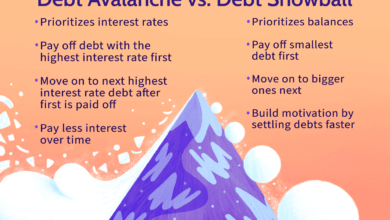The Ultimate Guide to Building Good Credit for Better Loan Rates
Absolutely, building good credit is pivotal for obtaining favorable loan rates and financial opportunities. Here’s an extensive guide on strategies and insights to establish and enhance your creditworthiness for better loan rates.
Understanding the Importance of Good Credit
1. Access to Better Loan Rates
- Good credit unlocks access to loans with lower interest rates, saving money over the loan term.
2. Financial Opportunities
- Opens doors to various financial opportunities like mortgages, auto loans, and credit cards with favorable terms.
3. Positive Financial Image
- Reflects responsible financial behavior, enhancing trust with lenders and potential creditors.
Establishing Good Credit
1. Open a Credit Account
- Start with a secured credit card or become an authorized user on a family member’s account.
2. Timely Payments
- Pay bills on time, including credit cards, loans, utilities, and rent, to build a positive payment history.
3. Credit Utilization
- Maintain low credit utilization—keep credit card balances below 30% of the available limit.
Strategies to Build and Maintain Good Credit
1. Regular Credit Monitoring
- Monitor credit reports for inaccuracies and address discrepancies promptly.
2. Diverse Credit Mix
- Maintain a mix of credit types (credit cards, installment loans) to show responsible handling of various debts.
3. Avoiding Excessive Credit Inquiries
- Limit new credit applications to avoid negatively impacting credit scores.
Leveraging Credit-Building Tools
1. Secured Credit Cards
- Utilize secured credit cards by making regular payments to demonstrate creditworthiness.
2. Credit Builder Loans
- Consider credit builder loans that allow borrowers to make payments toward a savings account while building credit.
3. Authorized User Arrangements
- Become an authorized user on someone else’s credit account to inherit their positive credit history.
Improving Credit Scores
1. Payment History
- Ensure timely payments on all accounts to build a solid payment history.
2. Credit Utilization
- Maintain low credit card balances relative to credit limits to improve credit scores.
3. Length of Credit History
- Keep older accounts open to demonstrate a longer credit history.
Common Misconceptions about Credit Building
1. Closing Old Accounts Improves Credit
- Closing old accounts can shorten credit history and negatively impact credit scores.
2. No Credit Card Debt Equals a Higher Score
- Having no credit card debt doesn’t necessarily boost scores; responsible credit utilization does.
3. Regularly Checking Credit Hurts Scores
- Checking your own credit score won’t harm it; in fact, monitoring regularly is encouraged.
Repairing Damaged Credit
1. Review Credit Reports
- Dispute errors and inaccuracies on credit reports to rectify them.
2. Payment Plans for Delinquent Accounts
- Negotiate payment plans or settlements for delinquent accounts to improve credit.
3. Professional Credit Counseling
- Seek guidance from credit counseling services to navigate credit repair processes.
Best Practices for Sustaining Good Credit
1. Consistent Financial Discipline
- Maintain good credit habits—pay bills on time, keep balances low, and avoid overextending credit.
2. Regular Credit Check-Ups
- Monitor credit reports periodically to ensure accuracy and address any issues promptly.
3. Responsible Borrowing
- Only borrow what’s necessary and manageable within the budget to avoid excessive debt.
The Impact of Good Credit on Loan Rates
1. Lower Interest Rates
- Good credit typically qualifies for lower interest rates on loans, reducing overall borrowing costs.
2. Higher Loan Approval Odds
- Better credit scores increase the likelihood of loan approval with more favorable terms.
3. Negotiation Power
- Strong credit offers negotiating leverage for better loan rates and terms.
Conclusion
Building and maintaining good credit is essential for accessing favorable loan rates and various financial opportunities. By establishing responsible credit habits, leveraging credit-building tools, and understanding credit improvement strategies, individuals can enhance their creditworthiness. Regular monitoring, prudent financial choices, and a proactive approach to credit management are key to securing better loan rates and financial stability. Good credit not only opens doors to better loan opportunities but also establishes a solid foundation for a healthier financial future.





